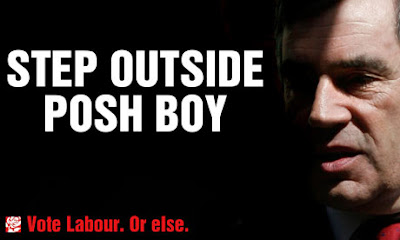After five days of intensive negotiations that saw Nick Clegg and his Liberal Democrats playing off the two major parties to see who would concede the best deal, the 'kingmaker' decided to agree to a formal coalition with the Conservative Party.
It is therefore a day for the history books. Britain has its the first coalition for 70 years and the youngest Prime Minister for 200 years (but only just: Tony Blair was 44 when he took power in 1997, David Cameron is 43). It is the first time in 30 years that a Conservatives have ejected a Labour government.
The last coalition government in Britain formed during the Second World War, a time of unparalleled crisis and urgency. While Britain may not face the same existential threat today, the size of its national debt and the dire state of the economy have forced politicians to put the national interest first.
That said, Nick Clegg has pulled off a coup that sees him installed as Deputy Prime Minister and four of his allies given positions in the Cabinet. Vince Cable is to have an influential role in the Treasury.
Opportunities like this do not come round often for the Liberal Democrats and despite the pressure Clegg didn't blow his chance.
The horse-trading took several twists and turns before delivering Tuesday afternoon's result. Gordon Brown looked set to have outmanoeuvred the Cameron when he announced he would resign by September if a formal Lib-Lab coalition came into being.
The move forced the Conservatives to immediately offer the Liberal Democrats a referendum on electoral reform that could see the first-past-the-post system replaced with the Additional Vote (AV). It is the least disadvantageous option for the Conservatives but it would still be likely to lose them seats if implemented.
However a Lib-Lab pact was still considered more likely due to their policies having more in common than they did with the Conservatives.
But the talks broke down over issues the Lib Dems thought wouldn't be disputed, including the abolition of the identity card scheme. Senior former Labour ministers John Reid and David Blunkett also spoke against against the creation of a 'progressive alliance' on the grounds that it would be seen as a coalition of the losers.
They voiced fears that smaller nationalist parties such as the SNP in Scotland, whose support would be required to push Bills through Parliament, could hold the government to ransom by demanding less damaging spending cuts at the expense of England.
Reid said a Lib-Lab coalition would be "mutually assured destruction" as they would be seen to be snubbing the electorate. Labour is therefore better off conceding defeat and regrouping to better its chances of snatching back power at the next election.
Whether or not the Conservative-Lib Dem coalition is the 'strong and stable' government they promised remains to be seen. As Nick Robinson said in his blog, it will either collapse under the pressure of competing tensions between and within the two parties or it will shape politics for generations to come.
But perhaps the best pithy statement that best summarises the historic events of Tuesday 11th May came from Guardian reporter Sam Jones.
Referencing the April Fool's Labour poster his newspaper created as the election kicked off, which featured a menacing, rough-hewn Brown daring Cameron to 'step outside, posh boy', Jones remarked that Tuesday's outcome, which saw former Etonian Cameron and the equally well-heeled Nick Clegg enter Number 10, could be summed up in four simple words:

And just in case you haven't seen it:

No comments:
Post a Comment